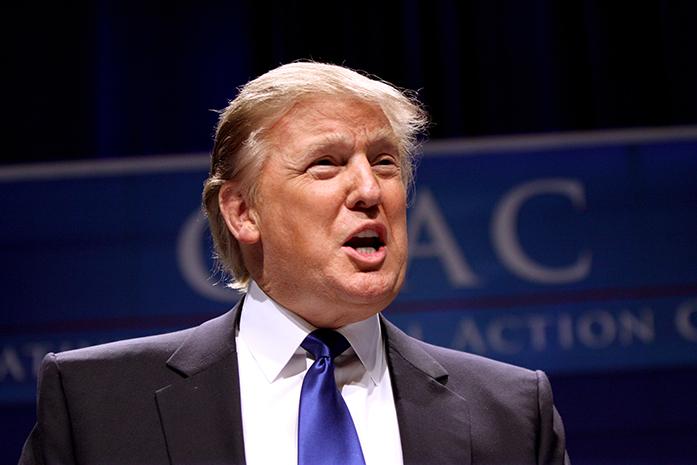It’s 6:14 a.m. on a Sunday; the birds are chirping, and Donald Trump is tweeting, “Watched ‘Saturday Night Live’ hit job on me. Time to retire the boring and unfunny show. Alec Baldwin portrayal stinks. Media rigging election.”
Trump cuts a figure that seems impossible not to lampoon. He seems committed to super-villainy so far right it seems ludicrous and not merely terrifying. A smarter man with the same politics would have been elected, but we got Trump instead.
Trump has been lambasted not only by “Saturday Night Live” but also by the current season of “South Park” and “The Simpsons.” Hillary Clinton was interviewed by Zach Galifianakis for his web series “Between Two Ferns,” a clear move to appeal to younger voters. And “Broad City” had an extended riff involving volunteering for the Clinton campaign, culminating in a surprisingly endearing cameo by the presidential candidate herself. In a polarizing election year, in which even the press has felt the impetus to take a side (almost entirely in support of Clinton), pop-culture endorsements have a proven effect. But while humor can galvanize people to action, satirizations of Trump only serve to normalize his rhetoric and play down his crimes.
On “Saturday Night Live” this past weekend, Alec Baldwin, playing Trump, said the women accusing him of sexual assault should “shut the hell up” and said Clinton committed crime “like a black.” Satire shouldn’t be comfortable, but for satire to be effective, it has to punch up, not down. Trump has shown time and again he thrives on attention, good or bad. Regurgitating his talking points on prime-time television gives him that attention. Even mocking him helps make his points about a media vendetta against him, helping the Trump campaign and further polarizing his supporters.
Both of these things will inevitably happen in the course of not only comedy but journalism. To report on a man like Trump, even by simply parroting what he says and offering the barest of fact-checking, would be spun into Trump’s favor. And to be sure, simply hearing what Trump says won’t make one a Trump supporter; you have to agree with what he says.
In comedy, however, the cathartic release of laughter blurs the lines between reporting and endorsing. When liberal audiences laugh at “Trump” saying victims of sexual abuse should “shut the hell up” or at claims that black people are criminals, what does that say about them? By turning the most despicable aspects of Trump into caricatured jokes, we become inured to the terror of his policies. Up until his most recent scandal, audio recordings of Trump bragging about sexual assault, he had remained electable, if unlikeable, to many in the GOP. Indeed, nothing about Trump’s policies has drawn a fraction of the ire this recent scandal has. By refusing to rebuke Trump until now, the Republicans implicitly say his policies are fine by them. The only thing that will stop Trump’s politics from becoming our political reality is his own lack of electability, and that’s not laughable, it’s worrying.



